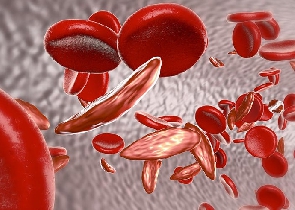- Home - News
- TWI News | TV
- Polls
- Year In Review
- News Archive
- Crime & Punishment
- Politics
- Regional
- Editorial
- Health
- Ghanaians Abroad
- Tabloid
- Africa
- Religion
- Election 2020
- Coronavirus
- News Videos | TV
- Photo Archives
- News Headlines
- Press Release
Health News of Monday, 29 June 2020
Source: thebusiness24online.net
Over 2,000 patients receive sickle cell disease treatment - Report
More than 2,000 patients have received hydroxyurea, the global standard of care for the treatment of severe sickle cell disease, in 11 treatment centers across Ghana, the Sickle Cell Foundation of Ghana has said.
“Without early diagnosis and preventive treatment, more than half of the children born with the sickle cell disease in sub-Saharan Africa will die before their fifth birthday,” Prof. Kwaku Ohene-Frempong, President of the Sickle Cell Foundation of Ghana said.
“Ghana was among the first countries in Africa to make hydroxyurea available on a large scale to people with sickle cell disease, and I believe it can serve as a role model on the continent for improving the diagnosis and management of the disease.”
Launched in 2019, the partnership aims to improve the lives of people with sickle cell disease. Partners are collaborating on a holistic approach that includes improving access to diagnosis and treatment; field-testing national treatment guidelines; and establishing centers of excellence across the country.
To date, Novartis has delivered more than 6,000,000 capsules of hydroxyurea to Ghana and provided support for the necessary laboratory monitoring, in an effort to help ensure availability of the medicine during the COVID-19 pandemic.
Hydroxyurea is a commonly used medicine for people with sickle cell disease in developed countries and is approved for use in both adults and children. In October 2018, the Ghana Food and Drugs Authority (FDA) granted marketing authorization to Novartis hydroxyurea, making it the first time that hydroxyurea is approved for this indication in Ghana.
A recent study, published in the New England Journal of Medicine indicates that hydroxyurea treatment is effective and safe in children with sickle cell disease in sub-Saharan Africa and reduces the incidence of pain events (vaso-occlusive crises), malaria, death, and the need for blood transfusions.
“We are deeply committed to reimagining the treatment and care for people with sickle cell disease in Ghana and across sub-Saharan Africa,” said Roland Hammond-Addo, Strategic Marketing Lead for the Africa Sickle Cell Disease Programme at Novartis in Ghana. “In addition to making hydroxyurea available and accessible, we are progressing with the development of a child-friendly formulation, and we hope to be able to initiate clinical trials with our next-generation treatment, crizanlizumab, within the year.”
With support from Novartis, the Sickle Cell Foundation of Ghana and other local partners are rolling out a clinical management app to help ensure hydroxyurea is administered safely and that patients are gaining the maximum benefit from the treatment. Field-testing is currently underway with approximately 50 healthcare professionals across the 11 centers.
In order to further advance Ghana’s national health agenda to improve the health and wellbeing of people with sickle cell disease, Novartis has signed an additional memorandum of understanding with the University of Ghana to promote education, research, advocacy and capacity-building.
The collaboration include plans for monitoring and evaluation to inform next steps of sickle cell programme and report on outcomes.
Sickle cell disease is recognized by the World Health Organization as a public health priority and a neglected health problem in sub-Saharan Africa.
Approximately 80% of individuals with SCD globally are born in sub-Saharan Africa, and there is evidence to suggest that more than half of affected individuals may die before the age of five due to preventable complications.
In Ghana, it is estimated that 15,000 babies are born with sickle cell disease every year.











